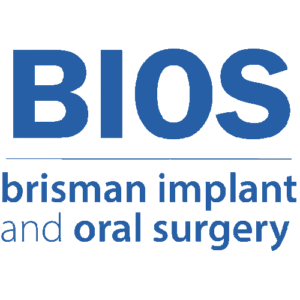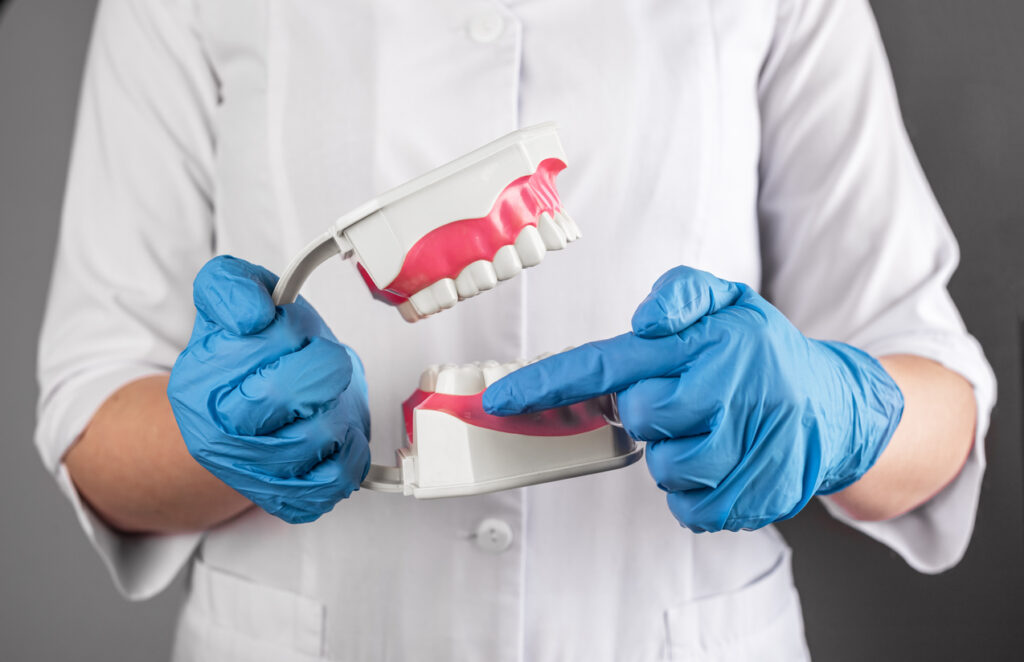Wisdom teeth removal is a rite of passage for many young adults, often marked by relief and a bit of apprehension about the recovery process. One common question that patients face after the procedure is when and how to resume brushing their teeth.
Maintaining oral hygiene post-surgery is crucial, but doing it incorrectly can set back your healing. That’s why understanding the delicate balance between keeping your mouth clean and maintaining the healing sites undisturbed is vital.
Let’s look at some key tips to help keep your mouth healthy during this critical time.
What Is Wisdom Tooth Removal?
Wisdom tooth removal, or wisdom teeth extraction, is a type of oral surgery that involves removing one or more of the four wisdom teeth located at the back corners of your mouth. These teeth are the last to emerge and often cause problems if there is insufficient space in the mouth or they come through at an angle. A maxillofacial surgeon or an experienced dentist usually performs this invasive surgery under anesthesia to minimize discomfort.
When Is Wisdom Teeth Removal Necessary?
Removal of wisdom teeth is advised under several circumstances to prevent future dental issues:
- Impacted Teeth: When wisdom teeth do not fully emerge and are trapped beneath the gum line, they can lead to pain, infection, and other dental problems.
- Overcrowding: Emerging wisdom teeth may push adjacent teeth, causing misalignment and discomfort.
- Risk of Infection: Partially erupted teeth are hard to clean, increasing the risk of tooth decay and gum disease.
- Cysts: The development of cysts around new teeth can damage the jawbone and surrounding tissues.
- Severe Pain: Persistent pain and gum inflammation are often signs that wisdom teeth could be problematic and may need to be removed.
Why Should You Avoid Brushing Your Teeth Immediately After Wisdom Tooth Removal?
Following the removal of your wisdom teeth, it’s crucial to allow your mouth to begin the healing process before resuming normal oral hygiene practices:
- Prevent Dry Socket: Brushing too soon can dislodge the blood clot at the extraction site, leading to a painful condition known as dry socket.
- Reduce Bleeding: Gentle care immediately after surgery helps to keep the initial minor bleeding under control and supports the formation of a high-quality blood clot.
- Limit Infection: Keeping the extraction socket free from food particles and bacteria without aggressive brushing helps prevent infections.
- Avoid Irritation: Harsh brushing can irritate the gum tissue, leading to discomfort and prolonging the recovery period.
- Overall Healing: Proper post-operative care supports faster healing by reducing stress on the surgical sites.
- Manage Pain: Overstimulation of the area through early brushing may heighten pain levels unnecessarily.
When Can You Brush Your Teeth After Wisdom Teeth Removal?
After having your wisdom teeth removed, it’s important to follow your dentist or oral surgeon’s care instructions to have proper healing. Generally, you can start brushing your teeth gently the day after surgery, but you should avoid the extraction sites to prevent disrupting the healing process. Here are some additional guidelines:
Within 24 Hours (Critical Period to Avoid Incision Sites)
Brushing near the extraction sites during the first 24 hours post-surgery is not advisable to maintain the integrity of the blood clot. Instead, use a soft-bristled toothbrush to gently clean the other areas of your mouth using circular strokes. Avoid any vigorous movements that might cause undue pressure on sensitive areas.
After a Day (Start Careful Brushing)
The day after surgery, it’s important to start carefully cleaning the teeth adjacent to the healing tooth socket. Use a soft toothbrush and mild toothpaste to gently brush surrounding areas without making direct contact with the extraction sites. This helps maintain oral hygiene while preventing disruption to the healing gum tissues.
Three Days After (Normal Oral Hygiene Routine But Still Gentle)
By the third day post-surgery, you can generally resume regular brushing of most of your teeth, except directly at the extraction sites. Continue to be gentle during this critical time in the healing process to support proper healing and avoid irritating the sensitive areas that are still recovering.
How to Brush Your Teeth Properly After Wisdom Tooth Removal
Step 1: Choose a Soft Toothbrush
Opt for a toothbrush equipped with soft bristles. These are gentle on sensitive gums and less likely to disrupt the healing tissues at the extraction sites. A soft toothbrush helps keep your teeth clean without risking damage to the oral tissues that are healing.
Step 2: Apply Gentle Pressure
When brushing, it is important to apply only gentle pressure to minimize discomfort and protect the newly formed blood clot at the tooth extraction site. Light brushing helps maintain cleanliness while avoiding any undue stress on sensitive areas.
Step 3: Brush Around, Not Over
Initially, focus on brushing around, not directly over, the surgical sites. This method helps in removing food particles and debris from other parts of your mouth while keeping oral hygiene intact without compromising the healing process at the surgical sites.
Step 4: Use Saltwater Rinses
Complement your brushing routine with mild saltwater rinses. A warm saltwater solution can be used several times a day to help cleanse the mouth and reduce bacteria levels around sensitive areas. This method is especially useful in maintaining cleanliness during the early stages of recovery.
Step 5: Incrementally Increase Intensity
As you progress in your recovery several days after the tooth extraction, gradually increase the intensity of cleaning closer to the extraction sites while maintaining a gentle approach. This incremental increase allows your gums to adapt and start healing without being overwhelmed.
Step 6: Replace Your Toothbrush Regularly
After undergoing a surgical procedure like wisdom tooth extraction, it is advisable to replace your toothbrush more frequently than usual. A clean, fresh toothbrush is vital for effective cleaning and reducing the risk of infection to maintain optimal oral health.
FAQs
Is It Safe to Use Toothpaste After Wisdom Teeth Removal?
After undergoing a wisdom teeth removal surgery, you can safely use a small amount of fluoride toothpaste during your dental care routine. This helps maintain optimal oral hygiene while being gentle on the healing extraction sites. Just make sure to use a soft-bristled toothbrush and avoid abrasive brushing movements around the extraction sites for greater comfort and to prevent any irritation.
Cleaning Wisdom Teeth Sockets
Maintaining the cleanliness of your wisdom teeth sockets post-extraction is crucial for preventing infections and promoting faster healing. For the initial day after surgery, it’s recommended to avoid rinsing to maintain the integrity of the blood clot. After this critical time, gently rinse your mouth with a warm saltwater solution after eating and before bed to help dislodge any trapped food particles and effectively reduce bacteria buildup.
Can I Use a Straw 7 Days After Tooth Extraction?
It is highly recommended to avoid the use of straws for at least 7 to 10 days following a wisdom teeth extraction. The suction movement can lead to the dislodgement of the blood clot, increasing the risk of developing a painful dry socket and extending the recovery process. Instead, gently sip liquids directly from a glass to safeguard your healing sites.
When Can I Use an Electric Toothbrush After Wisdom Teeth Removal?
After having your wisdom teeth removed, wait approximately a week before incorporating an electric toothbrush into your oral hygiene routine. When you begin to use it, set it to a gentle mode to avoid disturbing the delicate extraction sites. Use slow, gentle brush strokes, particularly around the areas still in the healing phase, to promote proper healing without risking irritation.
When Can I Spit After Wisdom Teeth Removal?
On the day of your surgical procedure, avoid spitting to protect the essential blood clot formed in the tooth socket. From the day after surgery, if spitting is necessary, perform it with extreme caution and gently to minimize any pressure on the healing areas, further supporting a smooth and prompt recovery process without complications.
Ensure Smooth Recovery: Reach Out to Brisman Implant and Oral Surgery for Wisdom Teeth Removal Concerns
Understanding the correct dental care practices after wisdom teeth removal can significantly affect your overall recovery experience. It’s important to manage this phase delicately to avoid complications that can impede healing.
If you are searching for a dental office that prioritizes patient education and post-operative support, Brisman Implant and Oral Surgery is your ideal choice. Our dedicated team offers detailed aftercare instructions and continuous support, making us a leader in oral surgery services.
Contact us today to ensure your post-surgery care is in the most capable hands.

